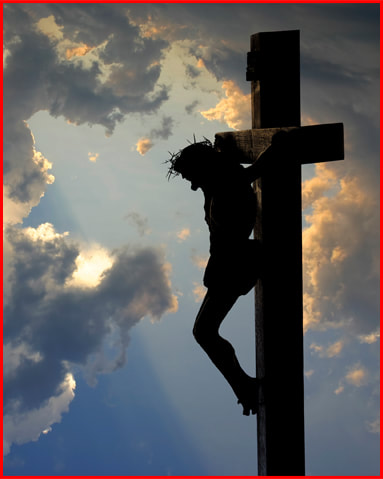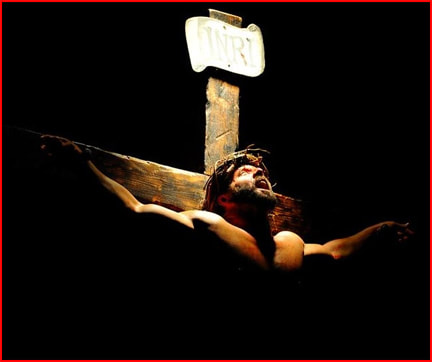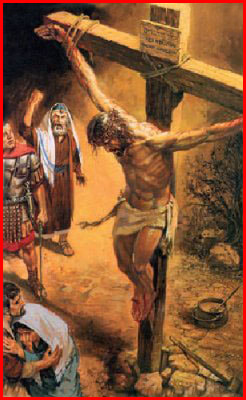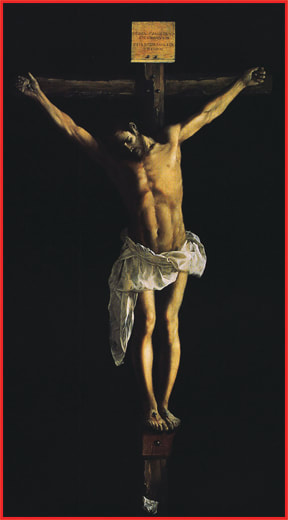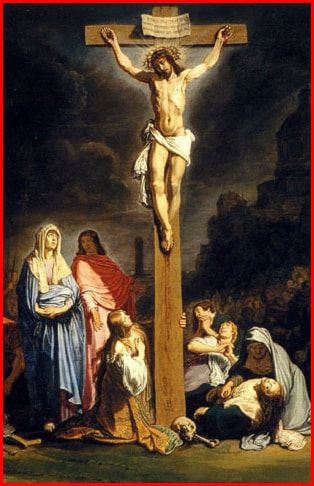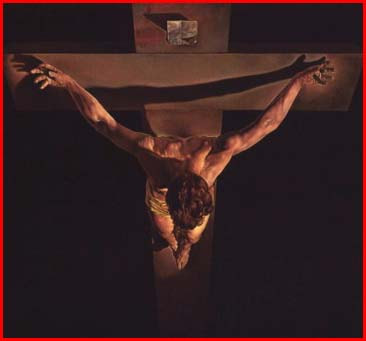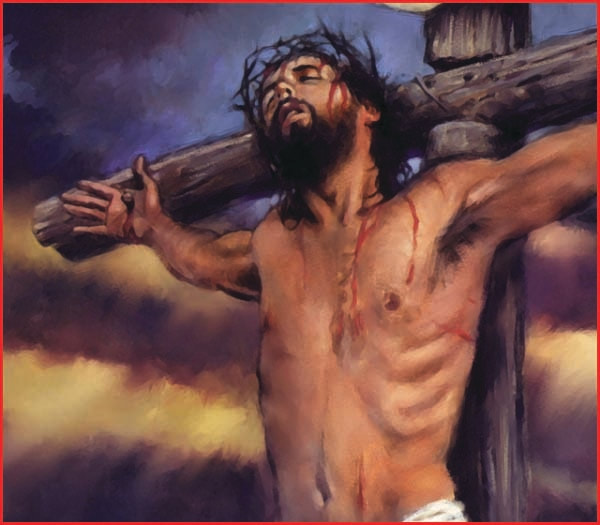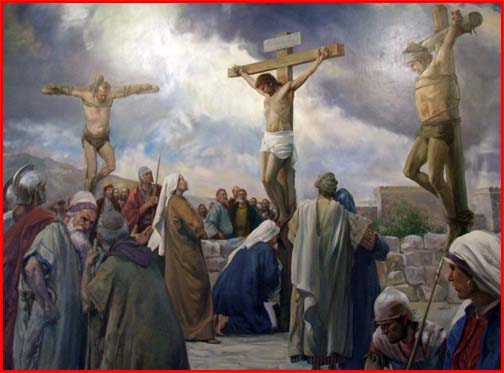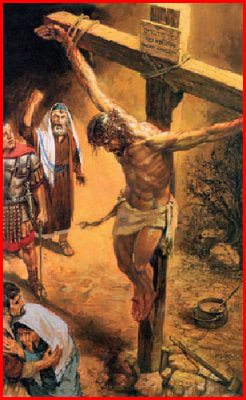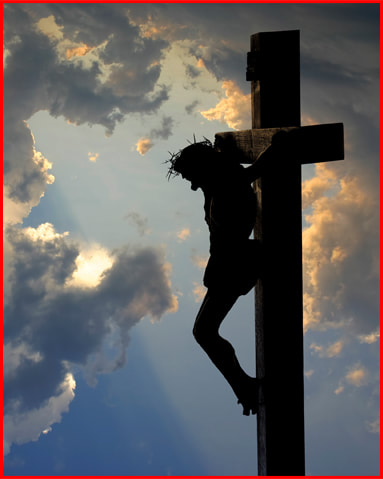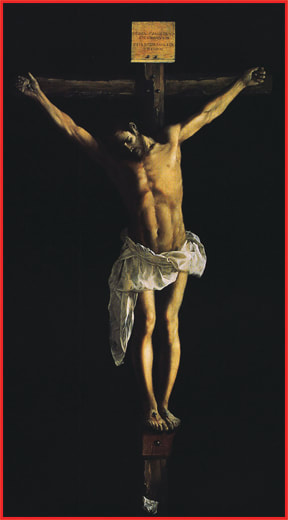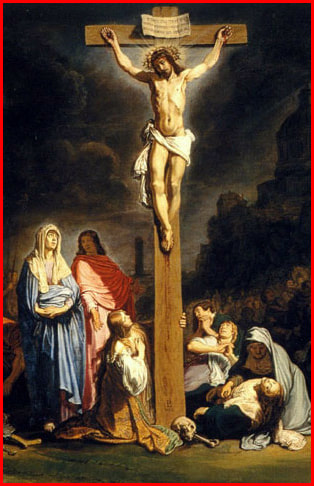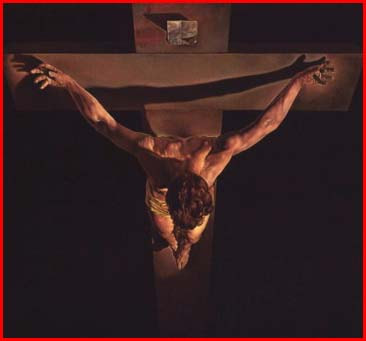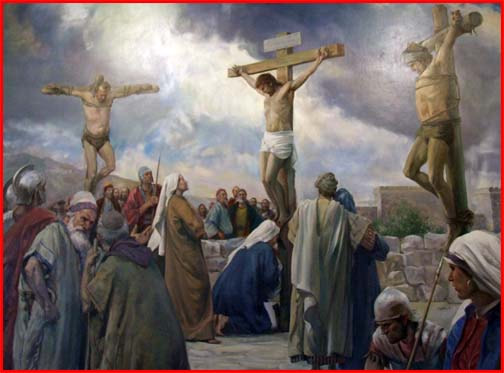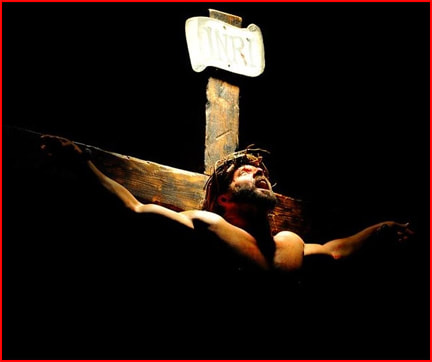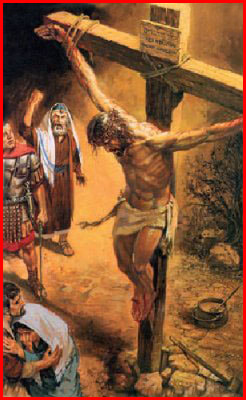| Devotion to Our Lady |
|
- Homepage
-
Daily Thoughts
- 2023 October Daily Thoughts
- Daily Thoughts Lent 2020
- Daily Thoughts for Advent 2019
- Daily Thoughts for October 2019
- Daily Thoughts for September 2019
- Daily Thoughts for August 2019
- Daily Thoughts for July
- Daily Thoughts for June
- Daily Thoughts for Easter 2019
- Daily Thoughts for Lent 2019
- Daily Thoughts for Christmas
- Daily Thoughts Easter 2022
- Sacred Heart
- Holy Ghost
-
Spiritual Life
- Holy Mass Explained
- First Friday Devotions
- First Saturday Devotions
- The Mercy of God
- Vocations
- The Path Everyone Must Walk >
- Gift of Failure
- Halloween or Hell-O-Ween?
- Ignatian Spiritual Exercises >
- Meditation is Soul-Saving
- Spiritual Communion
- Miraculous Medal
- Enrollment in Miraculous Medal
- St. Benedict Medal
- Holy Water
- Advice on Prayer
- Your Daily Mary
-
Prayers
- September Devotions
- Seven Sorrows of Our Lady
-
Novenas
>
- NV-Help of Christians
- NV-Nativity of Our Lady
- NV-Seven Sorrows
- NV- Sorrowful Heart
- NV-Pope St Pius X
- NV-La Salette
- NV-St Michael Archangel
- NV-Immaculate Heart
- NV-Assumption
- NV-Novena for Fathers
- NV-Novena for Your Mother
- NV-St Raphael Archangel
- NV-Souls in Purgatory
- NV-All Saints Day
- NV-Christ the King
- NV-Divine Motherhood
- NV-Guardian Angels
- NV-Rosary
- NV-Mirac Med
- NV- Imm Conc
- NV - Guadalupe
- NV - Nativity of Jesus
- NV-Epiphany
- NV-OL Good Success
- NV-Lourdes
- NV-St Patrick
- NV-St Joseph
- NV-Annunciation
- NV-St Louis de Montfort
- NV-OL Good Counsel
- NV-Last Supper
- NV-Passion
- NV-Pentecost
- NV-Ascension
- NV-Sacred Heart
- NV-Sacred Heart & Perpetual Help
- NV-Corpus Christi
- NV-OL of Perpetual Help
- NV-Queenship BVM
- NV-OL of Mount Carmel
- NV-St Mary Magdalen
- NV- Im Hrt
- August Devotions to IHM
- Immaculate Heart of Mary
- Litany of Dependence
- Prayers to St Mary Magdalen
- Prayers in Times of Sickness Disease & Danger
- Holy Souls in Purgatory
- Meditations on the Litany of Our Lady
- Special Feast Days
- Prayers to Mary (Mon-Sun)
- Litanies to Our Lady >
- Various & Special Needs
- Our Lady of the Rosary
- Our Lady of Mt. Carmel
- Our Lady of Perpetual Help
- Our Lady of Guadalupe
- Other titles of Our Lady
-
Rosary
- Downloads
- Consecration
- Easter Season
-
Holy Week
- Last Seven Words of Jesus >
- Characters of Passion >
- The Last Days of Christ
- Before Palm Sunday
- Palm Sunday
- Monday in Holy Week
- Tuesday in Holy Week
- Wednesday in Holy Week
- Holy Thursday (Last Supper)
- Holy Thursday (Agony & Arrest)
- Night Vigil with Christ
- Good Friday (Pilate & Herod)
- Good Friday (Way of Cross & Crucifixion)
- Saturday in Holy Week
-
Lent
- Ideas for Lent
- Daily Lenten Planner
- Daily Lenten Liturgy
- From Cold to Hot
- Lent with Aquinas
- Lent with Dom Gueranger
- Virtues for Lent
- History of Penance
- How Expensive is Sin?
- Confession of Sins
- Letter to Friends of the Cross
- Sermons for Lent
- Stations of the Cross >
- Lenten Prayers
- 7 Penitential Psalms
- Lenten Psalms SUN
- Lenten Psalms MON
- Lenten Psalms TUE
- Lenten Psalms WED
- Lenten Psalms THU
- Lenten Psalms FRI
- Lenten Psalms SAT
- Lenten Laughs
- Septuagesima
-
Christmas
- Epiphany Explained
- Suggestions for Christmas
- Food For Thought
- Christmas with Aquinas
- Christmas with Dom Gueranger
- Christmas Prayers
- Candles & Candlemas
- Christmas Sermons
- Christmas Prayers SUN
- Christmas Prayers MON
- Christmas Prayers TUE
- Christmas Prayers WED
- Christmas Prayers THU
- Christmas Prayers FRI
- Christmas Prayers SAT
- Twelve Days of Christmas >
-
Advent Journey
- Purgatory
- Christ the King
- Legion of Mary
- Scapular
-
Saints
-
Martyrs for the Faith
>
- Your Daily Martyr >
- All 365 Days of Martyrs
- Cristeros
- St Valentine & Valentine's Day
- Martyrs--Thomas Becket
- Martyrs--John the Apostle
- Holy Machabees
- Age of Martyrdom
- Carmelites of Compiegne
- Martyrs--Peter & Paul
- Martyrs--John the Baptist
- Martyrs--Andrew
- Martyrs--James the Great
- Martyrs--North American
- Martyrs--Seven Holy Sleepers
- Martyrs--Afra
- School of Martyrdom
- Martyrs--Christina
- Desert Saints >
- Saints for Sinners >
- Saints of Mary >
- History of All Saints Day
-
Martyrs for the Faith
>
- Precious Blood
- Synod 2023
-
Catechism
- Catechism Lesson 1
- Catechism Lesson 2
- Catechism Lesson 3
- Catechism Lesson 4
- Catechism Lesson 5
- Catechism Lesson 6
- Catechism Lesson 7
- Catechism Lesson 8
- Catechism Lesson 9
- Catechism Lesson 10
- Catechism Lesson 11
- Catechism Lesson 12
- Catechism Lesson 13
- Catechism Lesson 14
- Catechism Lesson 15
- Catechism Lesson 16
- Catechism Lesson 17
- Catechism Lesson 18
- Catechism Lesson 19
- Catechism Lesson 20
- Catechism Lesson 21
- Catechism Lesson 22
- Bible Study
-
Calendar
- Miracles
- Apparitions
- Shrines
- Prophecies
- Angels Homepage
- Hell
-
Church Crisis
- Conspiracy Theories
- Amazon Synod 2019 >
- Liberalism & Modernism
- Modernism--Encyclical Pascendi
- Modernism & Children
- Modernism--Documents
- The Francis Pages
- Church Enemies on Francis
- Francis Quotes
- Amoris Laetitia Critique
- Danger of Ignorance (Pius X)
- Restore all In Christ (Pius X)
- Catholic Action (Pius X)
- Another TITANIC Disaster?
- The "Errors of Russia"
- CRISIS PRAYERS
- Election Novena 2024
- The Anger Room
- War Zone
- Life of Mary
- Spiritual Gym
- Stupidity
- Coronavirus and Catholicism
- History & Facts
- Books
- Catholic Family
- Children
- Daily Quiz
-
Novena Church & Pope
- Day 01 Church-Pope Novena
- Day 02 Church-Pope Novena
- Day 03 Church-Pope Novena
- Day 04 Church-Pope Novena
- Day 05 Church-Pope Novena
- Day 06 Church-Pope Novena
- Day 07 Church-Pope Novena
- Day 08 Church-Pope Novena
- Day 09 Church-Pope Novena
- Day 10 Church-Pope Novena
- Day 11 Church-Pope Novena
- Day 12 Church-Pope Novena
- Day 13 Church-Pope Novena
- Day 14 Church-Pope Novena
- Day 15 Church-Pope Novena
- Day 16 Church-Pope Novena
- Day 17 Church-Pope Novena
- Day 18 Church-Pope Novena
- Day 19 Church-Pope Novena
- Day 20 Church-Pope Novena
- Day 21 Church-Pope Novena
- Day 22 Church-Pope Novena
- Day 23 Church-Pope Novena
- Day 24 Church-Pope Novena
- Day 25 Church-Pope Novena
- Day 26 Church-Pope Novena
- Day 27 Church-Pope Novena
- Day 28 Church-Pope Novena
- Day 29 Church-Pope Novena
- Day 30 Church-Pope Novena
- Day 31 Church-Pope Novena
- Day 32 Church-Pope Novena
- Day 33 Church-Pope Novena
- Day 34 Church-Pope Novena
- Day 35 Church-Pope Novena
- Day 36 Church-Pope Novena
- Day 37 Church-Pope Novena
- Day 38 Church-Pope Novena
- Day 39 Church-Pope Novena
- Day 40 Church-Pope Novena
- Day 41 Church-Pope Novena
- Day 42 Church-Pope Novena
- Day 43 Church-Pope Novena
- Day 44 Church-Pope Novena
- Day 45 Church-Pope Novena
- Day 46 Church-Pope Novena
- Day 47 Church-Pope Novena
- Day 48 Church-Pope Novena
- Day 49 Church-Pope Novena
- Day 50 Church-Pope Novena
- Day 51 Church-Pope Novena
- Day 52 Church-Pope Novena
- Day 53 Church-Pope Novena
- Day 54 Church-Pope Novena
- Penance Novena
- Daily WeAtheR Forecast
The Greatest and Most Important Week in the Church's Liturgical Year
CLICK ON ANY HOLY WEEK LINK BELOW
Also lots of LENTEN & HOLY WEEK DOWNLOADS on the downloads page (click here)
LITURGICAL PRAYERS FOR EACH DAY OF THE WEEK DURING LENT
| Sundays of Lent | Mondays of Lent | Tuesdays of Lent | Wednesdays of Lent | Thursdays of Lent | Fridays of Lent | Saturdays of Lent |
HOLY WEEK PAGES
| Daily Thoughts | Holy Week Main Page | Before Palm Sunday | Palm Sunday | Last Days of Christ |
| Holy Thursday Last Supper Novena | Good Friday Passion Novena |
| Monday of Holy Week | Tuesday of Holy Week | Wednesday of Holy Week | Holy Thursday (Last Supper) | Holy Thursday (Agony & Arrest) |
| Night Vigil With Christ | Good Friday (Pilate & Herod) | Good Friday (Way of Cross & Crucifixion) | Holy Saturday |
THE CHIEF CHARACTERS OF THE PASSION
| Characters of the Passion Mainpage | The Sanhedrin | Pharisees | Scribes | Saducees | Jewish Crowd | Roman Rulers |
| Judas | Annas & Caiphas | Pontius Pilate | Herod | Barabbas | Dismas the Good Thief | St. Peter | St. John | Mary Magdalen |
THE FOURTEEN STATIONS OF THE CROSS
| Introduction to the Stations of the Cross | Short Version of the Stations of the Cross (all 14 on one page) | 1st Station | 2nd Station | 3rd Station |
| 4th Station | 5th Station | 6th Station | 7th Station | 8th Station | 9th Station | 10th Station | 11th Station | 12th Station | 13th Station | 14th Station |
THE LAST SEVEN WORDS OF JESUS FROM THE CROSS
| Seven Last Words on the Cross (Introduction) | The 1st Word on the Cross | The 2nd Word on the Cross | The 3rd Word on the Cross |
| The 4th Word on the Cross | The 5th Word on the Cross | The 6th Word on the Cross | The 7th Word on the Cross |
PRAYERS AND DEVOTIONS TO THE SEVEN SORROWS OF OUR LADY
| Seven Sorrows Meditations | Short Prayers & Short Seven Sorrows Rosary | Longer Seven Sorrows Rosary |
| 1st Sorrow of Our Lady | 2nd Sorrow of Our Lady | 3rd Sorrow of Our Lady | 4th Sorrow of Our Lady |
| 5th Sorrow of Our Lady | 6th Sorrow of Our Lady | 7th Sorrow of Our Lady |
| Novena #1 to the Sorrowful Heart of Mary | Novena #2 to the Sorrowful Heart of Mary |
LENTEN PAGES
| ASH WEDNESDAY COUNTDOWN | LENT (MAIN PAGE) | DAILY THOUGHTS | DAILY LENTEN LITURGY | DAILY LENTEN PLANNER |
| LENTEN PRAYERS | THE 7 PENITENTIAL PSALMS | IDEAS FOR PENANCE | LENT WITH AQUINAS | LENT WITH DOM GUERANGER |
| HISTORY OF PENANCE | PENANCES OF THE SAINTS | HOW EXPENSIVE IS SIN? | CONFESSION OF SINS | ARE FEW SOULS SAVED? |
| VIRTUES FOR LENT | FROM COLD TO HOT | LENTEN LAUGHS | SERMONS FOR LENT | LETTER TO FRIENDS OF THE CROSS |
| STATIONS OF THE CROSS (INDIVIDUALLY) | ALL 14 STATIONS OF THE CROSS |
| THE LAST DAYS OF CHRIST | SPECIAL HOLY WEEK PAGES |
CLICK ON ANY HOLY WEEK LINK BELOW
Also lots of LENTEN & HOLY WEEK DOWNLOADS on the downloads page (click here)
LITURGICAL PRAYERS FOR EACH DAY OF THE WEEK DURING LENT
| Sundays of Lent | Mondays of Lent | Tuesdays of Lent | Wednesdays of Lent | Thursdays of Lent | Fridays of Lent | Saturdays of Lent |
HOLY WEEK PAGES
| Daily Thoughts | Holy Week Main Page | Before Palm Sunday | Palm Sunday | Last Days of Christ |
| Holy Thursday Last Supper Novena | Good Friday Passion Novena |
| Monday of Holy Week | Tuesday of Holy Week | Wednesday of Holy Week | Holy Thursday (Last Supper) | Holy Thursday (Agony & Arrest) |
| Night Vigil With Christ | Good Friday (Pilate & Herod) | Good Friday (Way of Cross & Crucifixion) | Holy Saturday |
THE CHIEF CHARACTERS OF THE PASSION
| Characters of the Passion Mainpage | The Sanhedrin | Pharisees | Scribes | Saducees | Jewish Crowd | Roman Rulers |
| Judas | Annas & Caiphas | Pontius Pilate | Herod | Barabbas | Dismas the Good Thief | St. Peter | St. John | Mary Magdalen |
THE FOURTEEN STATIONS OF THE CROSS
| Introduction to the Stations of the Cross | Short Version of the Stations of the Cross (all 14 on one page) | 1st Station | 2nd Station | 3rd Station |
| 4th Station | 5th Station | 6th Station | 7th Station | 8th Station | 9th Station | 10th Station | 11th Station | 12th Station | 13th Station | 14th Station |
THE LAST SEVEN WORDS OF JESUS FROM THE CROSS
| Seven Last Words on the Cross (Introduction) | The 1st Word on the Cross | The 2nd Word on the Cross | The 3rd Word on the Cross |
| The 4th Word on the Cross | The 5th Word on the Cross | The 6th Word on the Cross | The 7th Word on the Cross |
PRAYERS AND DEVOTIONS TO THE SEVEN SORROWS OF OUR LADY
| Seven Sorrows Meditations | Short Prayers & Short Seven Sorrows Rosary | Longer Seven Sorrows Rosary |
| 1st Sorrow of Our Lady | 2nd Sorrow of Our Lady | 3rd Sorrow of Our Lady | 4th Sorrow of Our Lady |
| 5th Sorrow of Our Lady | 6th Sorrow of Our Lady | 7th Sorrow of Our Lady |
| Novena #1 to the Sorrowful Heart of Mary | Novena #2 to the Sorrowful Heart of Mary |
LENTEN PAGES
| ASH WEDNESDAY COUNTDOWN | LENT (MAIN PAGE) | DAILY THOUGHTS | DAILY LENTEN LITURGY | DAILY LENTEN PLANNER |
| LENTEN PRAYERS | THE 7 PENITENTIAL PSALMS | IDEAS FOR PENANCE | LENT WITH AQUINAS | LENT WITH DOM GUERANGER |
| HISTORY OF PENANCE | PENANCES OF THE SAINTS | HOW EXPENSIVE IS SIN? | CONFESSION OF SINS | ARE FEW SOULS SAVED? |
| VIRTUES FOR LENT | FROM COLD TO HOT | LENTEN LAUGHS | SERMONS FOR LENT | LETTER TO FRIENDS OF THE CROSS |
| STATIONS OF THE CROSS (INDIVIDUALLY) | ALL 14 STATIONS OF THE CROSS |
| THE LAST DAYS OF CHRIST | SPECIAL HOLY WEEK PAGES |
THE SECOND WORD
This day thou shalt be with Me in Paradise!
This day thou shalt be with Me in Paradise!
|
BLESSED ANNE CATHERINE EMMERICH
The Dolorous Passion of Our Lord Jesus Christ Second Word of Jesus on the Cross A little hail had fallen at about ten o'clock,—when Pilate was passing sentence—and after that the weather cleared up, until towards twelve, when the thick red-looking fog began to obscure the sun. Towards the sixth hour, according to the manner of counting of the Jews, the sun was suddenly darkened. I was shown the exact cause of this wonderful phenomenon; but I have unfortunately partly forgotten it, and what I have not forgotten I cannot find words to express; but I was lifted up from the earth, and beheld the stars and the planets moving about out of their proper spheres. I saw the moon like an immense ball of fire rolling along as if flying from the earth. I was then suddenly taken back to Jerusalem, and I beheld the moon reappear behind the Mountain of Olives, looking pale and full, and advancing rapidly towards the sun, which was dim and over-shrouded by a fog. I saw to the east of the sun a large dark body which had the appearance of a mountain, and which soon entirely hid the sun. The center of this body was dark yellow, and a red circle like a ring of fire was round it. The sky grew darker and the stars appeared to cast a red and lurid light. Both men and beasts were struck with terror; the enemies of Jesus ceased reviling him, while the Pharisees endeavoured to give philosophical reasons for what was taking place, but they failed in their attempt, and were reduced to silence. Many were seized with remorse, struck their breasts, and cried out, "May his blood fall upon his murderers!" Numbers of others, whether near the Cross or at a distance, fell on their knees and entreated forgiveness of Jesus, who turned his eyes compassionately upon them in the midst of his sufferings. However, the darkness continued to increase, and everyone excepting Mary and the most faithful among the friends of Jesus left the Cross. Dismas then raised his head, and in a tone of humility and hope said to Jesus, "Lord, remember me when Thou shalt come into thy kingdom." And Jesus made answer, "Amen, I say to thee, This day thou shalt be with me in Paradise." FR. ALBAN GOODIER S.J. The Passion and Death of Our Lord Jesus Christ But perhaps the abuse that cut deepest into the heart of Jesus on the Cross was that which came from the crosses on either side of Him. From Roman soldiers He could expect no better treatment, though even from them, before the tragedy was over, He was to receive His prize of honor. From the elders and the leaders of Israel He was reaping only that which He had reaped from the beginning; though by them, too, by friend and enemy alike, He would be treated worthily at the end. But there was one class to whom He had always been drawn, for whom He had always had a peculiar fascination. He had been known in life as “the friend of publicans and sinners”; He had risked His very reputation for their sakes; only this morning He had been classed with them, a “malefactor”, as if the fact had required no proof. Often in His life by word and deed He had defended them; He had declared that such as they would enter the Kingdom when the more self-righteous would be cast out. He had spoken parables which had all proclaimed His predilection for the downtrodden; for the prayer of the Publican, for the broken Prodigal, for the Lost Sheep that He would seek at whatsoever cost to Himself. And in return, though in His lifetime He received insult from others in plenty, there is no record that He was ever insulted by publicans, or sinners, or the outcast. As, at the beginning, men of this type had gathered round John the Baptist, so had they come to Him. There had always been understanding; whatever their state, they had always known Him as a friend. And yet at this moment even that consolation seemed to be denied Him; for the first time these His beloved turned against Him. “And the selfsame thing the thieves, that were crucified with him, reproached Him with and reviled him.” If He was, as men reported, “the friend of sinners”, if He had said: “Come to Me, all you that labor and are burdened and I will refresh you”, had He not now an unmatched occasion to prove the truth of His words? As they, too, writhed in their agony on each side of Him, though stupefied in part by the drink that had been given to them, they joined in the cursing of the crowd: “If thou be the Christ, save Thyself and us!” Still, as from others, so from sinners, recognition came at last ; indeed, since in life and in death He had given most to them, so from them He received the one consolation of Calvary. One of the convicts continued his abuse ; the other grew silent. He had heard the prayer: “Father, forgive them, for they know not what they do!” They were strange words to come from the mouth of a condemned and convicted criminal; stranger still from one who was said to be a King. But they were words of prayer, and prayer became a dying man: would that he, too, could pray, and could go to the God of his fathers, to the bosom of Abraham, with some sort of contrition in his heart, with some word of hope on his lips. He ceased his own raillery; if he could, he would check the abuse of his comrade. His arguments might not be convincing; they might be confused, but his soul was in his words and they would say what he had in mind. “And one of these robbers, who were hanging, blasphemed him saying: ‘If thou be the Christ, save Thyself and us!” But the other answering rebuked him saying “Neither dost thou fear God, seeing thou art under the same condemnation!” It has often been noticed in the life of Jesus how a grace accepted has been the doorway to another. Jesus led His own to Himself step by step. We have seen it in Simon and Nathanael, in the first days by the Jordan; in the Roman centurion at Capharnaum, after the Sermon on the Mount; in the Woman who was a sinner at Magdala; in the Rich Young Man who came to Him in Perea, even though at the final step he failed. Nay, more; when He was asked for anything, when any confessed Him as He would be confessed, how generously Jesus poured Himself out, beyond the suppliant's dreams! A paralytic came to Him to be healed; Jesus sent him away, healed in both soul and body. A poor creature fell at His feet penitent; He made of her an intimate friend. An apostle confessed Him to be the true Son of God; He made him the head of His universal church. So, most conspicuously of all, as if He would set this last seal on all He had said and done for sinners, was it here with this dying criminal. The man had seen and had felt compassion for the dying Sufferer beside him; he had felt compassion and had defended Him. At once he received his reward; there came to him the sight of his own guilt, and the grace of contrition came with it. And with contrition his eyes were opened: “Blessed are the clean of heart, for they shall see God.” He saw his own guilt and the justice of his sentence; he saw the injustice that was being done to the Man beside him. Then came another grace, another vision, revealed to him “not by flesh and blood, but by the Father who is in Heaven”, as, long ago, it had been revealed to Simon Peter. Not only was Jesus innocent; being innocent, He must indeed be that which He claimed to be. He was a King, of a kingdom not of this world, of a kingdom which He would enter, even through the gates of death. Others had asked that they might sit, the one on His right hand, the other on His left, in that kingdom; the penitent criminal had no such ambitions. He was hanging on His right hand now, that was honour enough. For the rest, if afterwards in His kingdom this King would but remember His companion in death, he would be more than glad to die. Already he knew in whom he believed, he knew in whom he trusted; even on the cross He who was sent “for the lost sheep of the house of Israel” had not failed the sinner who looked up to Him, had gone after one and had found it. We may watch the growth of grace, step by step, from light and understanding to yet further light, as the crucified penitent continues: (1) “And we indeed justly, for we have received the reward of our deeds.” (2) “But this man hath done no evil.” (3) “And he said to Jesus: ‘Lord, Remember me when Thou shalt come into thy kingdom.’” It was indeed a tremendous act of faith, of the kind specially dear to Our Lord Jesus Christ, and in a special way it must be rewarded. As He had rewarded His Mother's faith long ago at Cana; as He had praised and crowned the Roman soldier's faith at Capharnaum; as the Syro-Phcenician's faith had been honoured by Him in the country about Tyre; as Simon's, for his brave confession; so now, for this unique recognition of Him, this solitary voice among all the execration, Jesus would reward this man in His own lavish way, full measure, flowing over. “Remember him?” That alone would have been much; it is all that a dying man will often ask of a friend. But it was not enough for the heart of Jesus Christ. “Remember him in the kingdom?” The very word “kingdom” no longer satisfies Him. Jesus turned His aching head towards His companion in suffering. He spoke with that emphatic introduction which He had always been wont to use whenever He proclaimed a solemn truth. From His throne on Calvary He spoke and acted and bestowed His largess like a King. Then Jesus said to him: “Amen I say to thee, this day thou shalt be with Me In paradise.” (The Passion and Death of Our Lord Jesus Christ, by Fr. Alban Goodier) MEDITATION It was language worthy of a conqueror, spoken on a field where a battle had been won; it was a reward worthy of Jesus Christ, the King of Israel, the Son of God. From a criminal, in an instant, to a saint, the first of the New Dispensation; with this unique distinction granted to no other, that he was canonized before his death. Legend of the Good Thief We read in The Life of Mary As Seen by the Mystics, that “to escape the wrath of Herod, St. Joseph and the Blessed Virgin were fleeing into Egypt with the Divine Child, they arrived at the camp of some highway robbers, who were at first inclined to treat them cruelly. But when the leader looked at the Infant Jesus, somehow his hard heart was deeply touched, and he ordered his men not to harm the travelers. Taking them into his hut, he had his wife give them some food and settle them comfortably in a corner. “At Mary's request the woman brought her a large container filled with water, in which the Blessed Virgin gave her Son a bath and washed His swaddling clothes. Meanwhile the chief robber said to his wife: “That is no ordinary child! He is a holy Baby! Ask His Mother to let you bathe our leprous son in the water she has used. Perhaps it will heal him?” “But before the woman said a word, Mary urged her to wash her sick son in the water. Then the mother brought in her three-year-old boy, whose leprosy was so advanced that it covered all his face and body. Yet as soon as he was placed in the water that Jesus had used, which was now clearer than it had been before, the sick boy's skin became perfectly smooth and healthy. “His mother was almost beside herself with joy and gratitude. She tried to kiss Mary and Jesus, but the Mother of God gently held her off and did not let her touch either of them. The father told all his men about the miracle, and they crowded into the hut and stared at the Holy Family with awe. “Later Mary had a long talk with the mother, who promised that she would stop living from crime as soon as she could. That night Mary hardly slept at all. She remained sitting on her bed, praying. “The next morning when the Holy Family left with some new provisions, the robber chief gratefully said good-by to them and exclaimed with deep emotion: “Remember me, wherever you are!” Thirty-three years later his robber son said to the Man crucified beside him on Calvary: “Lord, remember me when Thou comest into Thy Kingdom!” And that time—again due to Mary's prayers—Jesus healed his soul.” (The Life of Mary As Seen by the Mystics, Raphael Brown). Remember Whether the memory of the story his mother told him now came back to the thief and made him look kindly on Christ, we do not know. It might have been that his first meeting with the Savior was on the day when his heart was filled with compunction on hearing the story of a certain man who went down from Jerusalem to Jericho and fell among robbers. Perhaps, too, his first intimation that he was suffering with the Redeemer came to him as he turned his tortured head and read an inscription which bore His name, "Jesus"; His city, "Nazareth"; His crime, "King of the Jews." At any rate, enough dry fuel of the right kind gathers on the altar of his soul, and now a spark from the central Cross falls upon it, creating in it a glorious illumination of faith. He sees a Cross and adores a Throne; he sees a condemned man, and invokes a King: "Lord, remember me when You come into Your Kingdom." Not Praised by Religious Pharisees, but Praised by a Sinful Thief Our Blessed Lord was owned at last! Amidst the clamor of the raving crowd and the dismal universal hiss of sin, in all that delirium of man's revolt against God, no voice was lifted in praise and recognition except the voice of a man condemned. It was a cry of faith in Him whom everyone else had forsaken, and it was only the testimony of a thief. If the son of the widow of Nain, who had been raised from the dead, had cried out a word of faith in the Kingdom of One who was seemingly losing His Kingdom; if Peter, who on the Mount of Transfiguration had seen His face shine like the sun and His garments whiten like snow, had acknowledged Him; if the blind man of Jericho whose eyes were opened to the light of God's sunshine had been opened anew to proclaim His Divinity, we should not have been surprised. Why, if any of these had cried out, perhaps the timid disciples and friends would have rallied, perhaps the scribes and Pharisees would have believed! But at that moment when death was upon Him, when defeat stared Him in the face, the only one outside the small group at the foot of the Cross to acknowledge Him as Lord of a Kingdom, as the Captain of Souls, was a thief at the right hand of Christ. At the very moment when the testimony of a thief was given, Our Blessed Lord was winning a greater victory than any life can win, and was exerting a greater energy than that which harnesses waterfalls; He was losing His life and saving a soul. And on that day when Herod and his whole court could not make Him speak, nor all the power of Jerusalem make Him step down from the Cross, nor the unjust accusations of a courtroom force Him to break silence, nor a mob crying, "He saved others; Himself He cannot save," bring from His burning lips a retort, He turns to a quivering life beside Him, speaks, and saves a thief: "This day you will be with Me in Paradise." No one before was ever the object of such a promise, not even Moses nor John, not even Magdalen nor Mary! It was the thief's last prayer, perhaps also his first. He knocked once, sought once, asked once, dared everything and found everything. When our spirits stand with John on Patmos, we can see the white-stoled army in Heaven riding after the conquering Christ; when we stand with Luke on Calvary, we see the one who rode first in that procession. Christ, who was poor, died rich. His hands were nailed to a Cross and yet He unlocked the keys of Paradise and won a soul. His escort into Heaven was a thief. May we not say that the thief died a thief, for he stole Paradise? Oh, what greater assurance is there in all the world of the mercy of God? Lost sheep, prodigal sons, broken Magdalens, penitent Peters, forgiven thieves! Such is the rosary of Divine forgiveness. The Mercy of God to Sinners God is more anxious to save us than we are to save ourselves. There is a story told to the effect that one day Our Blessed Lord appeared to Saint Jerome, saying to him, "Jerome, what will you give Me?" Jerome answered, "I will give You my writings," to which Our Lord replied that it was not enough. "Then," said Jerome, "what shall I give You? My life of penance and mortification?" But the answer was, "Even that is not enough!" "What have I left to give You?" cried Jerome. Our Blessed Lord answered, "Jerome, you can give Me your sins." When a man is in great pain or dying, even his worst enemies will ordinarily leave him in peace. It would be unthinkable to walk into the sickroom of a dying man and make fun of him and taunt him. Such things are done only when savagery and the passion of hate are given full sway. Such things have happened under the banner of Communism, which denies God and which strips man of worth and dignity. This materialistic philosophy makes man an animal, so it may treat him like an animal or worse. Such things also happened while Christ was hanging on the Cross. His enemies derided Him, scoffed at Him and mocked Him while He hung dying in pain. A Guarantee To all this, which no doubt went on for some time, Christ replied not a single word. Yet He replied immediately to what was said by the thief crucified at His right. This man rebuked the thief on the left hand for his blasphemy. He told him that he should fear God, since he was soon about to die. "And we indeed justly," he continued, "for we receive the due reward of our deeds; but this man hath done no evil." (Luke 23:41). Then he said to Jesus: "Lord, remember me when thou shalt come into thy kingdom." The answer was a promise and a reassurance that went far beyond the request: "Amen I say to thee, this day thou shalt be with me in paradise." (Luke 23:43). The thief had diffidently asked merely to be remembered. He was given a guarantee of saving his soul and of eternal happiness. He Stole Heaven The Roman Martyrology, which is the book listing all the saints, lists under March 25: "the Good Thief." Those two words, which you would not expect to find together, are the words that have come down to describe the man at the right of Christ. We do not really know his name, though the name St. Dismas is used most often in referring to him. Of this man, St. Augustine said with both wisdom and wit that he remained a thief to the very end, such that after being a thief all his life, he finally ended by stealing Heaven. If we examine the words of this man and their meaning, we find that in a simple way he really went to Confession while hanging on his cross. Christ, the great Priest, in the very act of accomplishing His sacrifice, absolved him and, so to sneak, granted him a plenary indulgence. In the course of time various legends grew up around the Good Thief, but all we actually know about him is contained in the few lines of the Gospel of St. Luke. Still, even in these few lines there is a good bit of information. Dismas did something that even most of the followers and friends of Christ did not do. He supported Him and called Him Lord in the midst of His enemies. We might say: "Well, he didn't have anything to lose; he was already on the cross, soon to die." But it takes courage at all times to go against the crowd, especially when the crowd includes religious leaders of a people, and especially when it is so wrought up with passions as was the crowd on Calvary. Admits Sins The Good Thief confessed his guilt and admitted that he was just paying the penalty that he deserved. He had the humility and the honesty to admit his sins and to accept this terrible punishment of crucifixion. Finally, he had faith. To us today it may not seem much to have called Christ on the Cross, "Lord," and to have asked for remembrance in His kingdom. Yet it took great faith to see God in the broken, suffering Man on the next cross, apparently the victim of the schemes of His enemies. To call Christ "Lord," after He had just worked a miracle was one thing; to call Him "Lord," now was altogether different. Even the Apostles could hardly accept the frightening fact of their Master's apparent inability to outwit and to foil the plans of those who sought His life, and hence His hanging twisted and bloody in the agony and disgrace of a criminal's death. The Good Thief had sorrow for his sins; he confessed his guilt; he had faith; and finally he had hope; otherwise, he could not have asked for a place in the world to come. The Good Thief had the right dispositions for forgiveness. Therefore, despite his life of sin against God and man, he was forgiven and promised Heaven. Readiness of Mercy The mercy of God is always ready to reach out to and save a soul, even at the last minute, if only that soul co-operates, if there is humble admission of guilt, if there is still faith and hope. It does not take long—just a minute—to get right again with God, even after a lifetime of sin. Of course, there is the punishment of sin to make up for either in this life or in Purgatory. The Good Thief had his chance to suffer on the cross, and we can only imagine what excruciating pains crucifixion carries. Perhaps, too, God dealt more leniently with him, in this very hour of the Redemption, in canceling all his debt of temporal punishment and promising him immediate entry into paradise. Ezechiel was told by God: “As I live ... I desire not the death of the wicked, but that the wicked turn from his way, and live" (Ezechiel 33:11). Through Isaias, God spoke these words: "Can a woman forget her infant, so as not to have pity on the son of her womb? And if she should forget, yet will not I forget thee" (Isaias 49:15). Psalm 102, which concerns God's mercy, says: “As a father hath compassion on his children, so hath the Lord compassion on them that fear him: for he knoweth our frame. He remembereth that we are dust" (Psalm 102:13-14). God compares Himself to both a mother and a father in telling of His care for a soul. The book of Ecclesiasticus sums it up: "For according to his greatness, so also is his mercy with him" (Ecclesiasticus 2:23). Imagine the greatness of God as you see it in the great world He created, in the magnitude of mountain and ocean, in the vastness of space, in the far-flung distance of stars. As great as all this . . . is God's mercy. Christ on the Cross showed this mercy in action by the words: "This day thou shalt be with me in paradise." Repentance Must Be Freely Willed Now the question might occur: How is it that some still go to Hell, despite the great mercy of God? The answer is bound up in the mystery of free will decisions and God's justice. God will await the free will of man. His mercy is there, but man must co-operate by freely repenting. Christ waited on the Cross for the expression of sorrow on the part of the thief before promising him salvation. He must have been waiting also for the same from the thief on His left, and would gladly have given the same reply to him, but the other did not repent. If a man does not repent after mortal sin, God's justice demands that he must be punished in Hell. God does not force man to love Him. We Can Help! Do We Help? It is true, however, that God lets the prayers and tears and sacrifices of others have an influence on the conversion of mortal sinners. We recall the words of Our Lady of Fatima in this connection. She said that many souls go to Hell because there is no one to pray and make sacrifices for them. It is surprising to see the indifference of friends and relatives concerning the soul of one who is living outside of the Church. "Yes, he has been outside for years," they will say and simply shrug their shoulders. Even when the person is dying, often no effort is made to arouse him to faith and repentance. He is labelled as a hopeless case. Friends and relatives put on him the seal of Judas without making an effort to help. They may not even notify a priest, thinking it to be of no use. To act in this way is simply not to understand the mercy of God. Likewise, it is to underestimate the power of prayer and personal sacrifice for bringing about the conversion of another. We Should Rejoice at a Sinner's Return Even worse than indifference is the attitude of taking offense when somebody who has been outside of the Church, or some great sinner returns at the end of his life and is given Christian burial. The one who murmurs about this is like the older brother of the Prodigal Son. When he heard the music and found out his father had killed the fattened calf because the younger son had returned, he was angry and would not go into the house. Just before telling the story of the Prodigal Son, which is a story of God's mercy for the sinner, Our Lord had told of the lost sheep (Luke 15:4 ff.). "What man of you that hath an hundred sheep: and if he shall lose one of them, doth he not leave the ninety-nine in the desert, and go after that which was lost, until he find it? . . . I say to you, that even so there shall be joy in heaven upon one sinner that doth penance, more than upon ninety-nine just who need not penance." PRAYER Dear Jesus! Your kindness to the penitent thief recalls the prophetic words of the Old Testament: "If your sins be as scarlet, they shall be made as white as snow: and if they be as red as crimson, they shall be white as wool." In Your words of forgiveness to the penitent thief, I understand now the meaning of Your words: "I have not come to call the just, but sinners... Those who are healthy do not need a doctor; but sick people do." "There will be more joy in Heaven at the repentance of one sinner than at ninety-nine of the righteous who had no need of repentance." I see now why Peter was not made Your first vicar on earth until after he had fallen three times, in order that the Church of which he was the head might forever understand forgiveness and pardon. Jesus, I begin to see that if I had never sinned, I never could call You "Savior." The thief is not the only sinner. Here am I! But You are the only Savior. |
Web Hosting by Just Host

